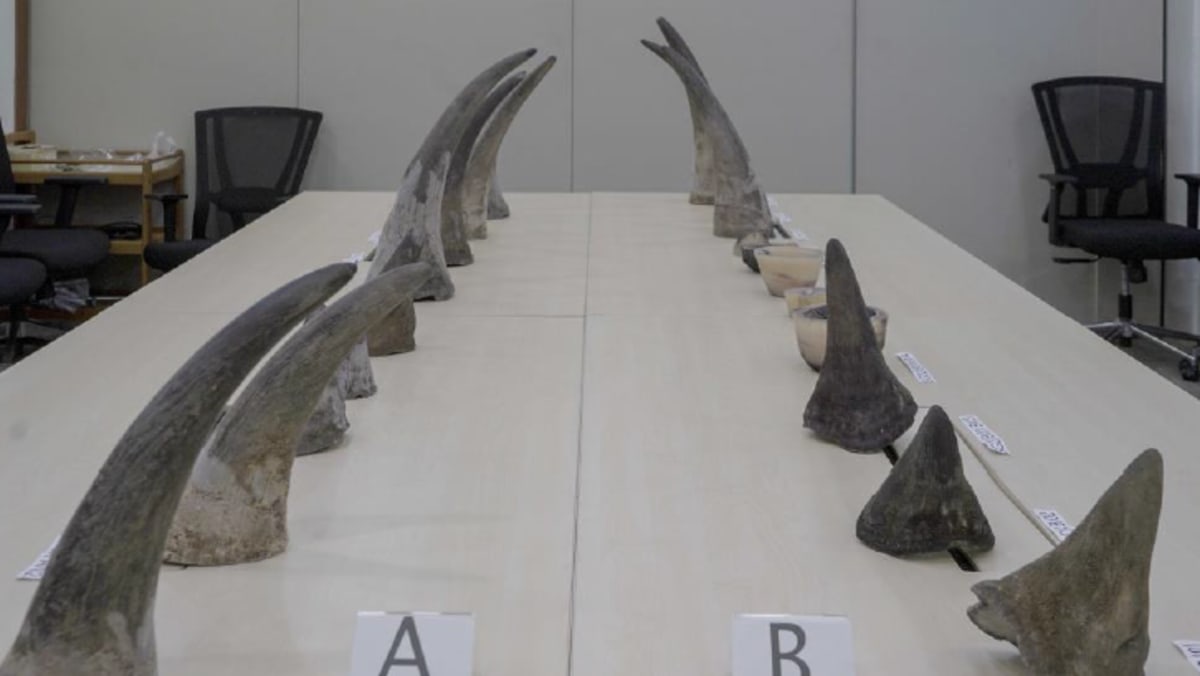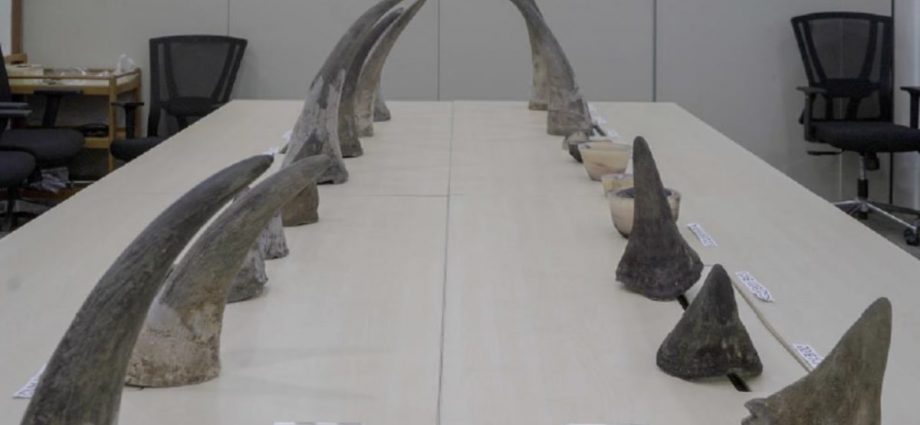
Rhinoceros are protected under the Convention on International Trade in Endangered Species of Wild Fauna and Flora (CITES), to which Singapore is a signatory.
Under CITES, international trade in rhinoceros horns is prohibited.
Singapore is committed to international efforts to curb illegal wildlife trade to ensure the long-term survival of these animals, said NParks.
“Genetic testing is being carried out at NParks’ Centre for Wildlife Forensics to identify the rhinoceros species,” it added.
“The horns will subsequently be destroyed to prevent them from re-entering the market, disrupting the global supply chain of illegally traded rhinoceros horns.”
Under Singapore’s Endangered Species (Import and Export) Act, those who are found in possession of CITES-scheduled species in transit in Singapore without valid CITES permits face a fine of up to S$50,000 per scheduled species, not exceeding an aggregate of S$500,000, up to two years in prison, or both.
“Singapore adopts a zero-tolerance stance on the illegal trade of endangered wildlife species, and their parts and derivatives,” NParks said.
“Our agencies collaborate closely in a multi-pronged approach, which includes working with our international partners, to maintain vigilance in regulating and enforcing against illegal wildlife trade.”

